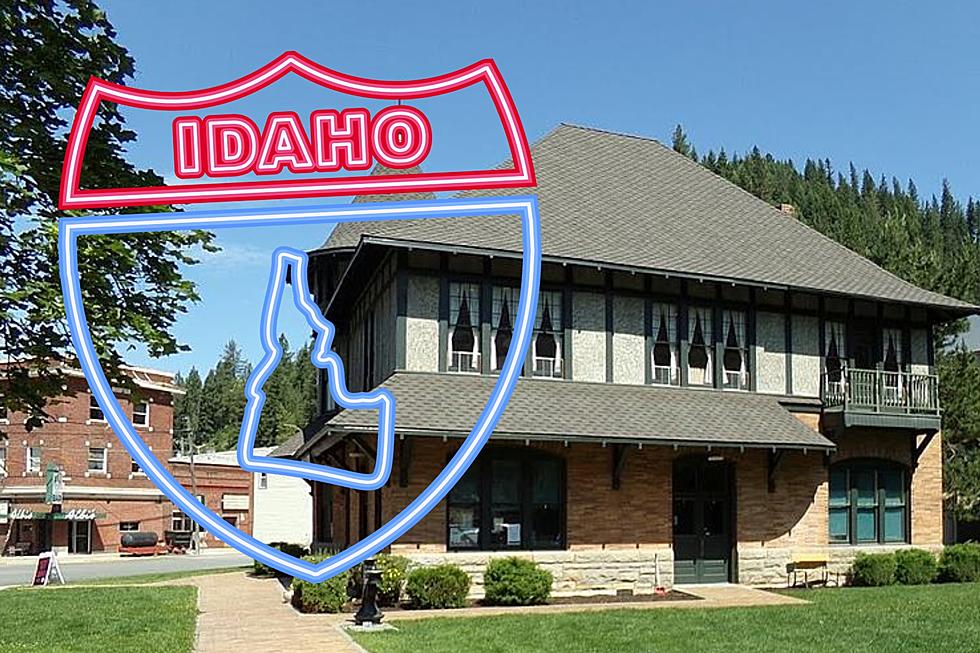
Raul Labrador Suggests Local Control for Refugee Program
No one in the Magic Valley is surprised to hear the refugee resettlement program at the College of Southern Idaho is controversial.
Labrador and Goodlatte have also partnered on making changes allowing local governments to better control illegal immigration.
We’ve been living through the arguments for and against. Now, there may be some changes on the way and local and state governments would be given the power to say no to resettlement.
Idaho U.S. Representative Raul Labrador and his colleague Bob Goodlatte from Virginia made the announcement Thursday. There has been very little coverage as we’ve been consumed by the Comey hearing yesterday. Labrador and Goodlatte have also partnered on making changes allowing local governments to better control illegal immigration. Details about the refugee bill are highlighted in the news release below:
LABRADOR & GOODLATTE INTRODUCE BILL TO
REFORM REFUGEE PROGRAM
WASHINGTON, D.C. – Today, Immigration and Border Security Subcommittee Vice Chairman Raúl Labrador (R-ID) and House Judiciary Committee Chairman Bob Goodlatte (R-Va.) introduced the Refugee Program Integrity Restoration Act (H.R. 2826). The bill reforms the refugee program by curbing fraud and strengthening public safety and national security. It also provides state and local governments the power to decide if refugees are to be resettled within their communities and gives Congress, not the President, the authority to set the overall refugee ceiling for each year.
Representative Labrador and Chairman Goodlatte issued the statements below on the introduction of the Refugee Program Integrity Restoration Act.
Representative Labrador: “The most important factor when it comes to America’s refugee program is ensuring the safety and security of the American people. I support America’s refugee program, but it needs to be modernized to keep up with the security challenges of today’s world. There are already documented cases of terrorists infiltrating our refugee program, and with ISIS vowing to exploit it further, the time for Congressional action is now.
“Today, I am introducing the Refugee Program Integrity Restoration Act of 2017, which will make common-sense reforms to fix our broken refugee program. My bill implements stronger vetting, gives states and communities the power to decline resettlement, and lowers the annual refugee ceiling to the number recommended by President Trump. It’s a smart bill that is worthy of bipartisan support.
“I want to thank Chairman Goodlatte for joining me in introducing this bill, and I look forward to working with my colleagues in getting it passed and signed into law.”
Chairman Goodlatte: “The United States has a generous refugee program that has provided millions of people fleeing persecution with a safe home. We must maintain our nation’s generosity but also need to improve the refugee program to prevent fraud and thwart terrorists from exploiting the system to gain entry to the United States.
“The Refugee Program Integrity Restoration Act makes a number of reforms to the refugee program to curb fraud, strengthen national security and public safety, and restore integrity to the program. Notably, it enhances screening and establishes thorough vetting procedures to identify fraud and potential security risks. Administration officials have stated that roughly 300 people who came to the U.S. as refugees are under active investigation by the FBI for potential terrorism-related offenses. We have an obligation to the American people to beef up vetting procedures for those seeking to come here. I thank Representative Labrador for his work on this bill and look forward to moving it through the House Judiciary Committee soon.”
Key Components of the Refugee Program Integrity Restoration Act:
Places the refugee ceiling in Congress’ hands—not the President’s:
- The bill sets the refugee ceiling at 50,000 per year. It allows the President to recommend a revision of the ceiling number and Congress can choose to act on that recommendation.
- The bill prevents the President from admitting additional refugees without Congress’ approval.
- Empowers state and local communities:
- Currently, states or localities that do not want refugees resettled within their communities have no recourse. The bill remedies this issue and prevents the resettlement of refugees in any state or locality that takes legislative or executive action disapproving resettlement within their jurisdiction.
Enhances integrity of refugee program and curbs fraud:
- It requires that when processing refugee applications from countries listed as “Countries of Particular Concern” in the annual report of the United States Commission on International Religious Freedom, claims/applications that are based on religious persecution and are made by individuals who practice minority religions in such countries, are prioritized.
- The bill requires termination of refugee status if a resettled refugee returns to the country from which they fled, absent a change in country conditions.
- It requires the Secretary of the Department of Homeland Security to implement a fraudulent document detection program for refugee processing, including the placement of Fraud Detection and National Security officials at initial refugee screening, and the creation of a searchable database of scanned and categorized documents submitted by potential refugees at initial screening.
- It provides for regular security vetting of each admitted refugee until the refugee adjusts immigration status to lawful permanent resident.
- Within one year of the bill becoming law, all U.S. Citizenship and Immigration Services (USCIS) interviews, performed during USCIS circuit rides and done with the assistance of an interpreter, are to be recorded and DHS must review a random selection of 20% of the recordings to ensure that the interpreter correctly interpreted the interview. If an interpreter is found to have incorrectly interpreted the interview, the interpreter cannot serve as an interpreter for immigration purposes.
- The bill requires USCIS to review publicly available Internet postings, including social media, for each applicant.
Strengthens public safety and national security:
- The bill prevents the Secretary of DHS from unilaterally waiving most grounds of inadmissibility, including criminal convictions, for refugees.
- It also prevents the DHS Secretary from waiving most grounds of inadmissibility and deportability, including criminal grounds, for refugees attempting to adjust their status to lawful permanent resident.
- The bill requires the Government Accountability Office to issue a report on the security of the U.S. Refugee Admissions Program (including the screening and processing procedures); the number of refugees who have been convicted of terrorism-related offenses since 2006; and the use of federally-funded benefit programs by refugees resettled in the United States.
More From News Radio 1310 KLIX









